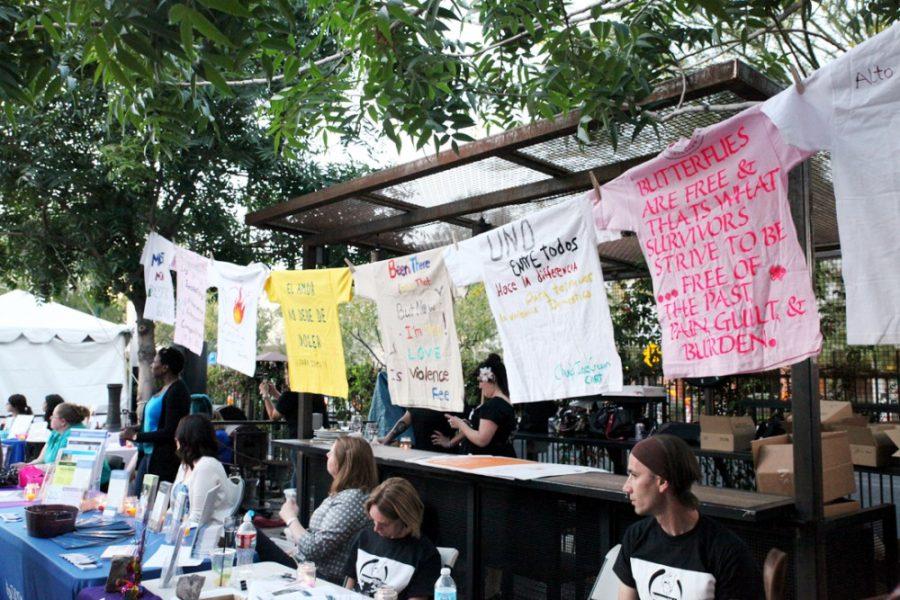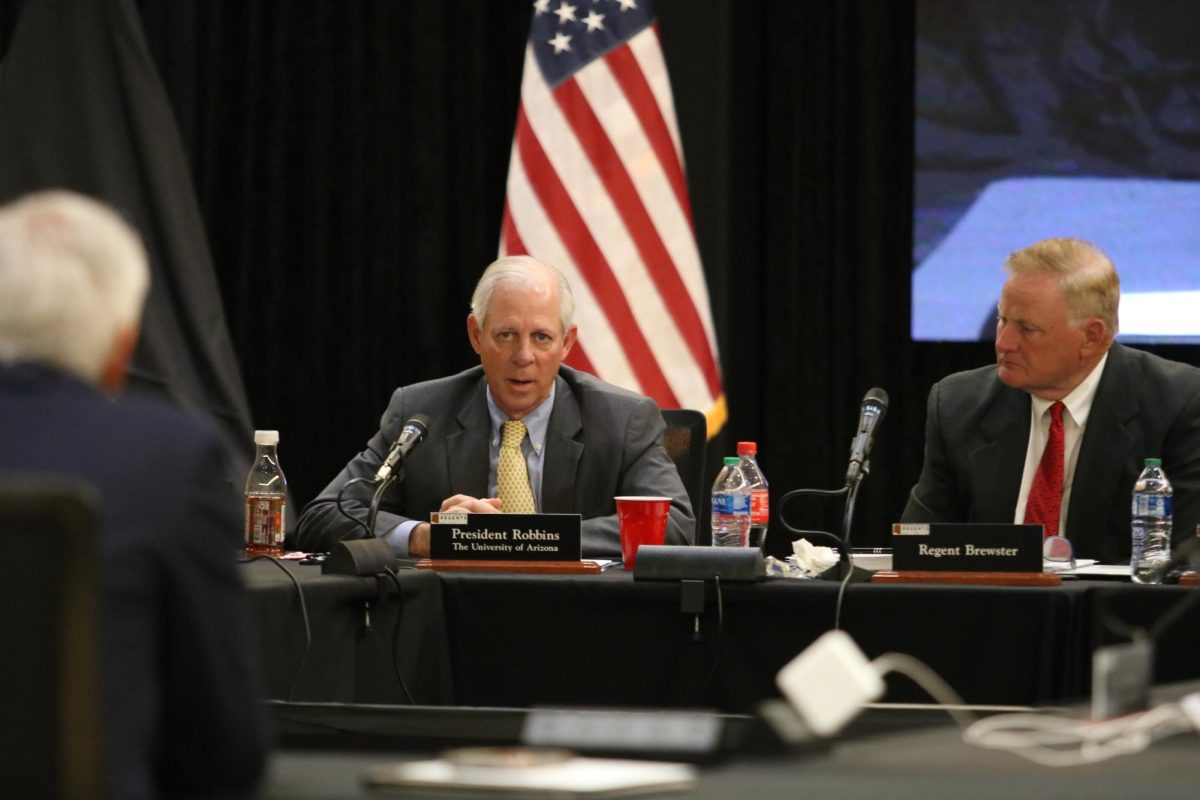Take Back the Night is a Tucson community event in which individuals are invited to speak out and raise public awareness of sexual assault and rape.
An on-campus Take Back the Night Event took place Tuesday at the UA Women’s Plaza of Honor from 4:30-8 p.m. The event consisted of giveaways, a march, a resource fair and speaker presentations.
The event, a function of Sexual Assault Awareness Month, aims to promote the development a society that does not tolerate sexual assault and rape culture.
Erin Badger, lead organizer of the event, said Take Back the Night has been celebrated since 1995 in 30 different countries and in Tucson for about 20 years now.
On April 8, Hotel Congress hosted a Take Back the Night event as well, which included a candlelight vigil, to promote public visibility of the event.
“We don’t think that sexual assault is something that should be hidden,” Badger said. “In past years, it has been a somber reflection of people who have survived the assault, and we definitely want to reflect this sentiment… at the same time, we also want to celebrate by incorporating more music.”
Kristen Nelson, founder and executive director of Casa Libre, was one of the guest speakers at Hotel Congress who spoke out against sexual assault and violence.
“I think speaking out is also really important,” Nelson said. “It makes all of us who are survivors feel less alone. We should all air out our dirty laundry.”
As a survivor of sexual assault, Nelson emphasized the inclusive nature of the anti-sexual assault campaign.
“It’s really important that we acknowledge that all genders are survivors of sexual abuse and sexual assault,” Nelson said.
Monica Jones, a social work senior at Arizona State University, spoke at Hotel Congress about the sexual assault of transgender women.
“I think sexual assault is unique to trans women,” Jones said. “I was taught to deal with it … by brushing it off.”
According to Jones, the crimes often go unreported because survivors have to report them to the police. Jones admitted being sexually assaulted a number of times by clients and police officers.
“I remember times where [the police] called me a man,” Jones said. “Why would I go to the police to be re-traumatized?”
Jones added that it’s important for young men and women to also voice their stories.
“People may think that sexual assault or rape isn’t a big issue compared to other issues happening around the globe, but it is,” said Bianca Medina, a general studies senior, “and it is impacting individual people on a day-to-day basis.”
Badger also emphasized that survivors have been silenced for ages by a culture “that passively accepts sexual violence.”
“Some people can remain silent if they’d like,” Badger said. “Just know that we’re supporting you, and you’re not alone.”
_______________
Follow Terrie Brianna on Twitter.









